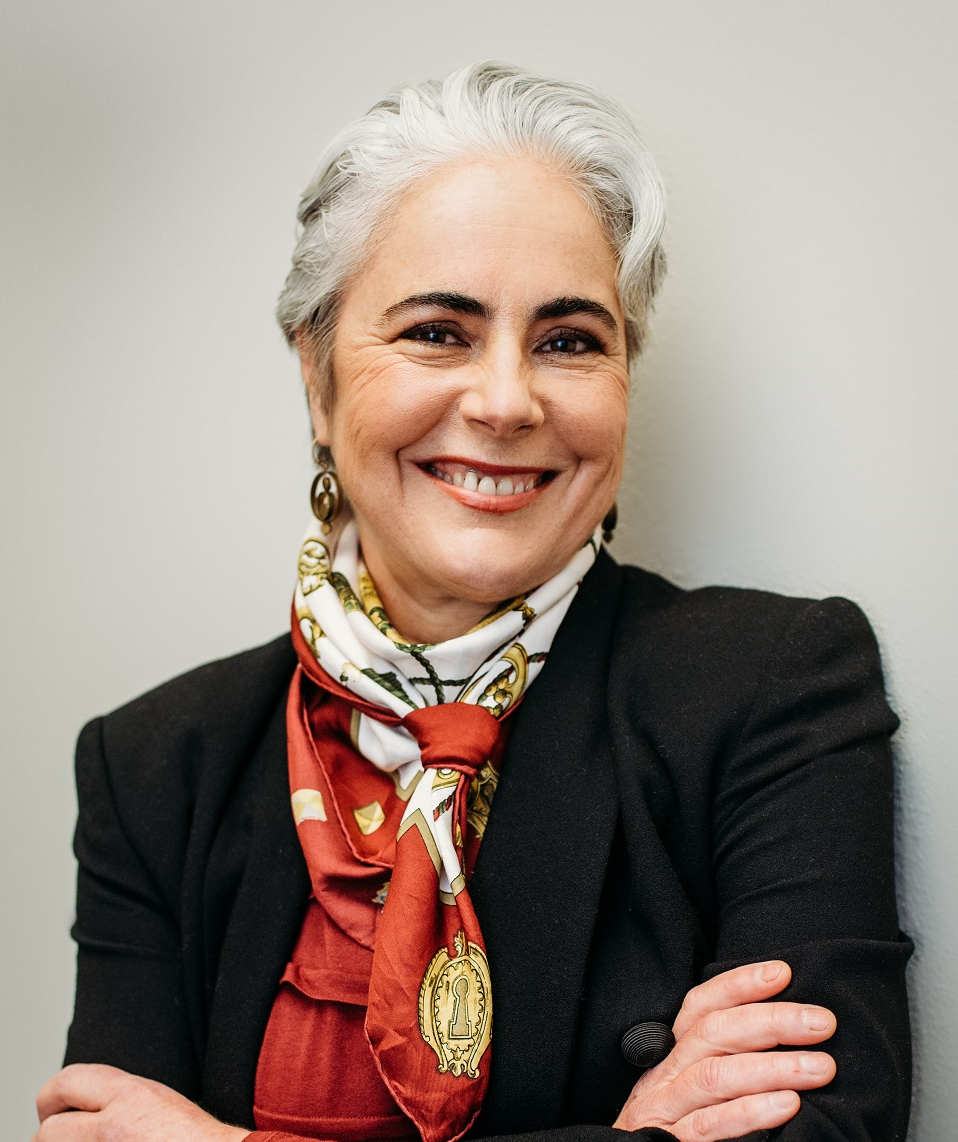
Nathalie Paravicini is the Pacific Green Party of Oregon's candidate for secretary of state in 2024.
Courtesy of Nathalie Paravicini
Editor’s note: Election Day is Tuesday, Nov. 5. Stay informed with OPB on the presidential race, key congressional battles and other local contests and ballot measures in Oregon and Southwest Washington at opb.org/elections.
OPB asked candidates for Oregon’s secretary of state the same questions. Candidates were given a 150-word limit. Anything beyond the 150-word total was not included in these responses. Read our coverage of this race here. See answers from Democratic candidate Tobias Read here and Republican candidate Dennis Linthicum here.
To start, please give us your name and basic biographical details, including your current position or job, any elected offices you have held and any key facts you would like voters to know about you.
My name is Nathalie Paravicini, as a naturopathic doctor I care for patients with complex neuroinflammatory cases. As such, I have firsthand experience navigating an inefficient, convoluted, paperwork-saddled, industry-hampered healthcare system. As a lifelong entrepreneur, I have managed all my legal affairs, including international contracts. I can certainly quickly learn how to use the resources of the Secretary of State office.
I have not held elected office yet, but have worked on technical committees and coalitions that have worked closely with governmental agencies. The Secretary of State is one of three members of the Land Board, in charge of managing state forests. As a lifelong Green, I bring a position on this issue that is critical in light of climate change and social divide.
What are the job duties of the secretary of state? Why should you be elected Oregon’s next secretary of state?
The Secretary of State is tasked with running voting and elections in Oregon; in the past few years, the SOS has made certain rulings that have limited participation. Petitioner requirements, for example, have become onerous and the spurious 2022 ruling by the SOS undermined campaign finance reform.
In addition, the SOS is tasked with registration and management of business services such as notaries and apostilles, maintaining the state archives and conducting governmental audits.
As indicated above the SOS is one of 3 members of the State Land Board - and we need a completely fresh and creative perspective. In particular, we absolutely need an advocate to re-establish the severance tax in Oregon, to support rural communities mined (and polluted) for their wood.
Related: What you need to know about voting in Oregon and Southwest Washington
In addition to this job’s many responsibilities, the secretary of state is next in line to be governor. What in your background prepares you for that responsibility?
I have very strong leadership skills and uncompromising ethics. Most importantly, working in grassroots community efforts, as a Latina in regions with very strong and recent histories of White (male) Supremacy, I have learned how to listen to others and find common ground. I have organized in the most conservative areas of Texas, as a Green, and have always had an excellent response. The need for leadership that can rise above divides was clearly demonstrated in 2020.
How would you use the office’s power of the audit? What programs, agencies or issues do you believe deserve scrutiny from the secretary of state’s office?
As a healthcare provider, I would focus on healthcare agencies, particularly the auditing of insurance companies and large institutions. Everyone has read about the high-level hanky-panky at OHSU; in the meantime, we cut physical medicine like massage and acupuncture out of the pain clinic. I order a medication that in the US costs $2000 for 42 pills; when my patients can get 100 pills for $150 through Canada. Oregon has historically underfunded behavioral health, something that is deeply intertwined with houselessness. This needs a systemic approach.
We need pay parity for preventative integrated care like naturopathic medicine. How can it be that I can order lifesaving treatments that cost up to $60,000 but I am in the same pay category as a lactation consultant? Behavioral health services experience the same problem. That is why there is a lack of key entry-level services. It makes no sense.
Related: Issues important to Oregon voters
What is the greatest challenge facing Oregon’s election system?
We need to make sure HB is not diluted by rules and interpretation that undermine the intent of the law; such as setting a limit to the number of staff that “membership organizations” can provide; develop and push for the disclosure provisions in Petition 9 and similar measures.
Likewise, I will provide leadership to speed-up the implementation of Ranked Choice Voting. The implementation of Ranked Choice Voting, meaningful Campaign Finance Reform (as in Petition 9 from 2024) and some form of public financing of campaigns has the potential to profoundly change politics in Oregon, at a time when we will need extensive participation to address Climate Change.
We need to reach-out to rural communities and address their concerns. My experience speaking with individuals from rural communities is that we agree on most principles. Those communities are hurting. Both the Oregon Rebate proposed this year and/or the severance tax could provide hugely-needed investment in education and other services.
Related: Listen to 'OPB Politics Now'
What is your view of ranked choice voting? How would you implement and explain a system to Oregonians if voters approve this election change this fall?
The Green Party played an instrumental role in bringing this initiative to the ballot. The best way to explain RCV is to provide this link: https://fairvote.org/our-reforms/ranked-choice-voting/



